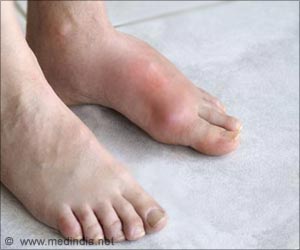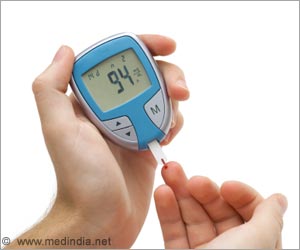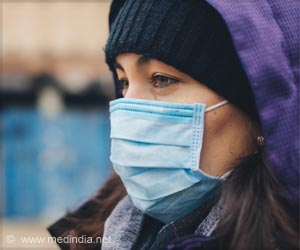Journey to Africa
Immunization / Vaccination
You must start your vaccination well in advance, before you set foot on the African soil. Only then will you be immunized against some diseases endemic to the African continent.
Yellow Fever: It is an acute viral infection caused by the bite of Aedes mosquito and common in many African countries. ‘Yellow’ refers to the jaundice caused by the virus in some patients affected by the disease.
Yellow fever is usually severe, though moderate episodes are not uncommon. The symptoms manifest within five days of exposure. Acute symptoms include fever, muscle pain, nausea and vomiting. Toxic symptoms include jaundice, bleeding and affected kidney function.
All travelers to Africa are advised vaccination against this disease, especially in areas where the risk is high. In fact, many African countries such as Botswana, require to be shown an International Certificate of Vaccination as proof of vaccination against Yellow fever, particularly if you are arriving from sub-Saharan Africa or any other infected country.
The current Yellow fever vaccine affords immunity for 10 years.
Cholera: This bacterial disease is a serious public health concern in Africa. Transmission is through contaminated water and food.
Severe symptoms include the onset of frequent watery stools and vomiting. Dehydration can occur rapidly. It is imperative that oral rehydration solution be given immediately to replace lost body fluids and salts.
Even though the World Health Organization (WHO) has dissuaded the policy of making vaccination for cholera compulsory before entering a country, it is strongly advised that travelers to Africa have a shot. In fact, many local officials in African countries still expect travelers to show proof of cholera vaccination at the port of entry.
However, the current vaccine is only about 50% effective and provides protection for just six months.
Hepatitis A: Africa is a high -risk zone for this disease. It is a viral infection of the liver, transmitted through poor hygiene, improper sanitation or intimate contact with an affected individual. Contaminated objects, food and drinks (including water), are also agents of transmission. All travelers to any African country are advised vaccination against this infection.
There are two types of vaccine available
Hepatitis B: Transmission of this viral infection that affects the liver is only through
Typhoid: All travelers are advised to take this vaccine, as typhoid is prevalent throughout Africa. There are 2 types of vaccines available-an oral tablet that requires yearly boosting and a single dose IV injection that affords immunity for three years.
Meningococcal Meningitis: Epidemic outbreaks of this disease occur in many African countries. Therefore, it is recommended that you be vaccinated. Immunity lasts for up to 3 years.
Diphtheria/Tetanus: Travelers intending to visit any African country should consider vaccination against these diseases. Both vaccines confer immunity against the respective disease for 10 years.
Polio: It is recommended to take a vaccine against polio. OPV (Oral Polio Vaccine) is given to children under 18 years of age. IPV (Inactivated Polio Vaccine) is for those travelers either unable to take the oral drops or have not been previously vaccinated.
Rabies: The rabies vaccine is especially recommended for those travelers who will be working closely with animals or come into contact with them. Rabies is prevalent throughout Africa and you must seek a clinicians’ advice on whether a vaccine is essential or not.
Yellow Fever: It is an acute viral infection caused by the bite of Aedes mosquito and common in many African countries. ‘Yellow’ refers to the jaundice caused by the virus in some patients affected by the disease.
Yellow fever is usually severe, though moderate episodes are not uncommon. The symptoms manifest within five days of exposure. Acute symptoms include fever, muscle pain, nausea and vomiting. Toxic symptoms include jaundice, bleeding and affected kidney function.
All travelers to Africa are advised vaccination against this disease, especially in areas where the risk is high. In fact, many African countries such as Botswana, require to be shown an International Certificate of Vaccination as proof of vaccination against Yellow fever, particularly if you are arriving from sub-Saharan Africa or any other infected country.
The current Yellow fever vaccine affords immunity for 10 years.
Cholera: This bacterial disease is a serious public health concern in Africa. Transmission is through contaminated water and food.
Severe symptoms include the onset of frequent watery stools and vomiting. Dehydration can occur rapidly. It is imperative that oral rehydration solution be given immediately to replace lost body fluids and salts.
Even though the World Health Organization (WHO) has dissuaded the policy of making vaccination for cholera compulsory before entering a country, it is strongly advised that travelers to Africa have a shot. In fact, many local officials in African countries still expect travelers to show proof of cholera vaccination at the port of entry.
However, the current vaccine is only about 50% effective and provides protection for just six months.
Hepatitis A: Africa is a high -risk zone for this disease. It is a viral infection of the liver, transmitted through poor hygiene, improper sanitation or intimate contact with an affected individual. Contaminated objects, food and drinks (including water), are also agents of transmission. All travelers to any African country are advised vaccination against this infection.
There are two types of vaccine available
- Gamma-globulin, which provides short- term protection, and,
- Hepatitis A Vaccine, the latest, which gives long- term protection.
Hepatitis B: Transmission of this viral infection that affects the liver is only through
- Contaminated blood, other body fluids, needles and syringes
- Sexual contact
Typhoid: All travelers are advised to take this vaccine, as typhoid is prevalent throughout Africa. There are 2 types of vaccines available-an oral tablet that requires yearly boosting and a single dose IV injection that affords immunity for three years.
Meningococcal Meningitis: Epidemic outbreaks of this disease occur in many African countries. Therefore, it is recommended that you be vaccinated. Immunity lasts for up to 3 years.
Diphtheria/Tetanus: Travelers intending to visit any African country should consider vaccination against these diseases. Both vaccines confer immunity against the respective disease for 10 years.
Polio: It is recommended to take a vaccine against polio. OPV (Oral Polio Vaccine) is given to children under 18 years of age. IPV (Inactivated Polio Vaccine) is for those travelers either unable to take the oral drops or have not been previously vaccinated.
Rabies: The rabies vaccine is especially recommended for those travelers who will be working closely with animals or come into contact with them. Rabies is prevalent throughout Africa and you must seek a clinicians’ advice on whether a vaccine is essential or not.


















Post your Comments